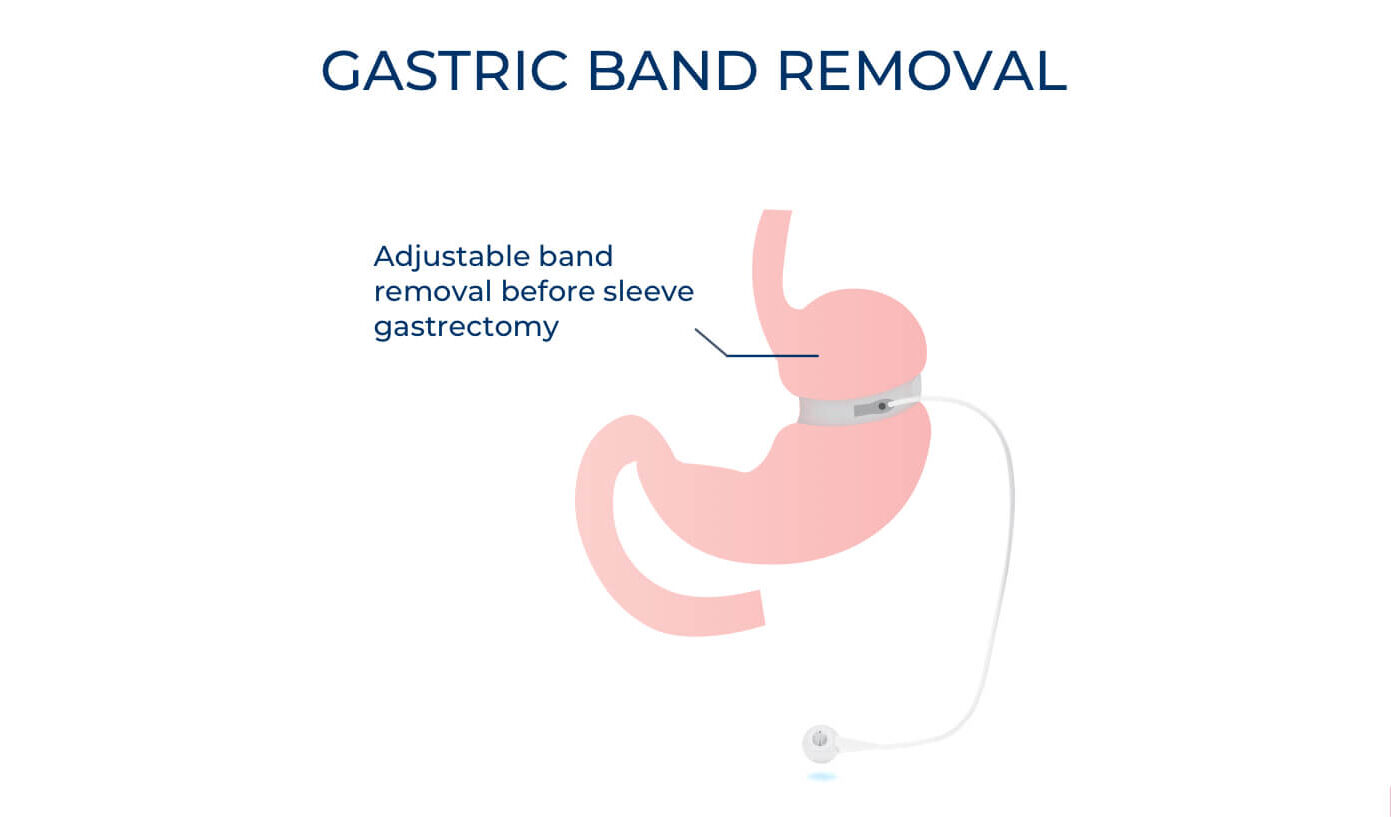
- Average Length of Stay: 4 Nights
- Length of Stay in Hospital: 3 Days
- Operation Duration: 1-3 Hours
- Anesthesia: Local
- Recovery Duration: 2 Weeks
Band Removal
Introduction: Bariatric surgery has been a transformative solution for many individuals struggling with obesity, offering hope and a path towards healthier living. However, the journey is not always linear, and circumstances may arise that necessitate revisiting the initial procedure. This article delves into the process of band removal in bariatric surgery, exploring the reasons behind it, the procedure itself, and the subsequent considerations for individuals who undergo this revision.
1. Understanding Bariatric Bands:
Bariatric bands, commonly known as gastric bands or lap bands, are devices placed around the upper part of the stomach to create a smaller pouch, limiting food intake and promoting weight loss. While effective for many patients, there are instances where individuals may face complications or changes in health status that warrant the removal of the band.
2. Reasons for Band Removal:
Several factors may contribute to the decision to remove a bariatric band:
- Complications: Band-related complications such as erosion, slippage, or infection may necessitate removal to safeguard the patient’s health.
- Inadequate Weight Loss: In some cases, patients may not achieve the desired weight loss or may experience weight regain despite the presence of the band.
- Intolerance or Allergy: Rare cases involve patients developing allergies or intolerances to the materials used in the band, prompting the need for removal.
3. The Band Removal Procedure:
Band removal is typically performed through a minimally invasive procedure known as laparoscopic surgery. This approach involves making small incisions and using a laparoscope, a thin tube with a camera, to guide the surgeon in removing the band. In cases where complications are severe, open surgery may be necessary.
4. Considerations for Band Removal Patients:
- Health Monitoring: Following band removal, patients will undergo a period of health monitoring to ensure a smooth recovery and assess any changes in their health status.
- Weight Maintenance Strategies: Individuals who experience inadequate weight loss or weight regain post-removal may need to explore alternative weight maintenance strategies, such as dietary adjustments and increased physical activity.
- Emotional and Psychological Support: The emotional impact of band removal should not be underestimated. Patients may benefit from counseling or support groups to navigate the psychological aspects of this transition.
5. Exploring Revisional Bariatric Procedures:
In cases where the band is removed due to inadequate weight loss or other factors, patients may consider revisional bariatric procedures. These revisions could involve converting to a different bariatric surgery, such as a gastric sleeve or gastric bypass, to address weight loss challenges more effectively.
Conclusion: Band removal in the context of bariatric surgery represents a pivotal moment in a patient’s weight loss journey. Whether due to complications, inadequate weight loss, or other factors, the decision to remove a bariatric band requires careful consideration and medical expertise. Post-removal, individuals embark on a new phase of their health and wellness journey, necessitating ongoing support, monitoring, and potentially considering revisional procedures to optimize their long-term success. As the field of bariatric surgery continues to evolve, band removal and subsequent strategies contribute to the ongoing refinement of personalized and effective weight management solutions.
